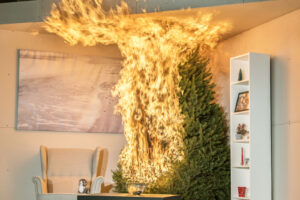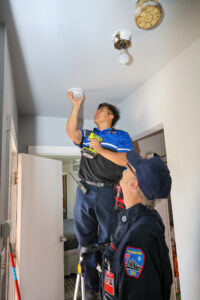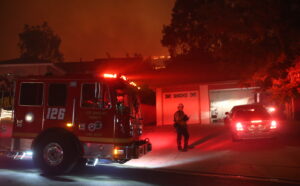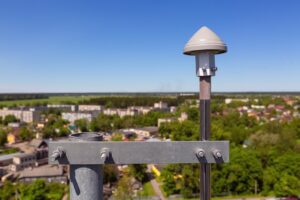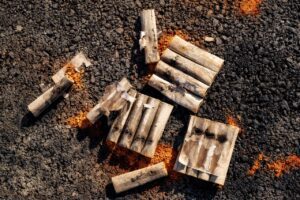Fire. It could happen to you.
Are you willing to risk your life if your home experiences a fire?
During the past 13 years, everywhere we turn, we see messages about life safety. Fire Safety. Earthquake Safety. Terrorism awareness. See something, say something. Yet, with all of the educational messages, public service announcements, and informational resources, on average, 2,500 times a year people die in house fires. More than 13,000 people are injured annually as a result of fires — many of them scarred for the rest of their lives.
In Los Angeles, the City of Angels has already experienced 16 fatality fires in the first half of this year. Among those reported fatalities, a family of four died in an early morning fire in their converted barn/home. An older adult woman died in her apartment when a seemingly innocuous fire broke out in the late afternoon. A young man in his thirties died while napping. And most recently, an older adult died when fire rushed through his home in the late morning. A Los Angeles City firefighter was hospitalized while trying to rescue him, but too late. In nearly every case, there was no working smoke alarm to alert these people that their lives were in danger.
Our nature is to believe we control our environment and know it better than anyone else. This is in spite of demonstrable evidence that situations present themselves in which there is no control. Psychologist Ellen Langer came up with the phrase “Illusion of Control” to describe this human condition.
We see this illusion all around us. Walk into any casino and watch the “shooter” at a craps table rolling the dice. Most likely, they’ll be practicing the illusion of control: breathing on the dice or jiggling them in their hand before they make the toss. Sometimes, it works out and everyone gets paid. Eventually, even for the best players, their luck will run out. Yet, they maintain the illusion that overall, they control the dice.
One thing that isn’t an illusion is the suite of statistics related to working smoke alarms. According to the United States Fire Administration and UL Labs, fire deaths have been cut in half since smoke alarms were introduced in the 1970s. During the past eight years, they’ve decreased an additional 30%, leading to conclusive evidence that the best way to survive a house fire is to maintain working smoke alarms.
Even with this understanding of how effective a smoke alarm is, more than five million homes are without working alarms. Millions more have non-functional alarms – either too old, or with the alarms disabled (often intentionally).
Today’s alarms are designed to be more “aware” of the environment. Depending on the make and type, they can detect heat, or smoke, or both. We’ve learned that smoke alarms don’t belong in kitchens, or in bathrooms, the most likely locations for false alarms.
The average cost of a smoke alarm is less than $20. If you live in a two story, three bedroom home, you should ideally have an alarm inside each sleeping area, outside those areas in the hallway, and one on each floor, with the upstairs alarm at the top of the stairs. Realistically, even with one alarm in each bedroom, and one on each floor, the cost for the set of alarms should be approximately $100. Most people can install them within minutes, but even professional installers or handy persons aren’t likely to charge more than the cost of the alarms to install them.
Is $200 worth your family’s safety?
We read about house fires every week in the various news outlets and fire department blogs. But most of us don’t know anyone whose home has burned down. Most of us have never experienced a fire in our home. The realistic chances that our home will burn are less than one percent when compared to the total number of homes and those that experience fires.
So, what’s the rush?
I’ve been told that a significant contributing factor for people not installing smoke alarms is their personal need to feel they are in control not only of their environment, but of their ability to make choices. Telling someone to install smoke alarms is a directive – not unlike clean your room, or do the dishes, or put that cigarette out.
My organization, The Safe Community Project (parent to MySafe:LA) has studied the “smoke alarm problem” and has determined there are some methods for creating a positive decision making process. We’ve taught fourth and fifth grade students to inspect their homes and to get their parents to prove their alarms are either working, or missing. In the event the home is without an alarm, we provided one at no charge. Our students are doing this because it’s fun and “grown up.” They care about their family’s safety. Once our students demonstrate an understanding of fire safety, we reward them with “Junior Fire Inspector” ID cards and have them awarded by their local firefighters. During the past two years, we’ve distributed nearly eight thousand smoke alarms (and/or batteries) to families in at-risk communities.
But what about homes without kids? Or, older adults living independently on their own? It’s a fantasy to believe people will let a stranger into their home to check on their safety and decision making abilities. Some will, but others not so much. People’s homes are their castle, even if they’re not well kept, are out of code, or house too many people. That’s the next trick for our team – to crack the mystery of “why” so many millions of people refuse to take that simple step that could save their lives.
The most important messages are simple. Fire burns. Smoke kills. That’s why these devices are called smoke alarms – to warn us about smoke in our home. To alert us to get out – and to stay out pending arrival of first responders. And make no mistake: It could happen to you.
So, roll the dice? Imagine the dealer at the craps table with a shotgun. If you lose, he shoots you. But, the choice is yours. You don’t even have to play the game. Given the odds, what choice would you make?
*** Fire Burns. Smoke Kills™ is a trademark of The Safe Community Project and MySafe:LA.




